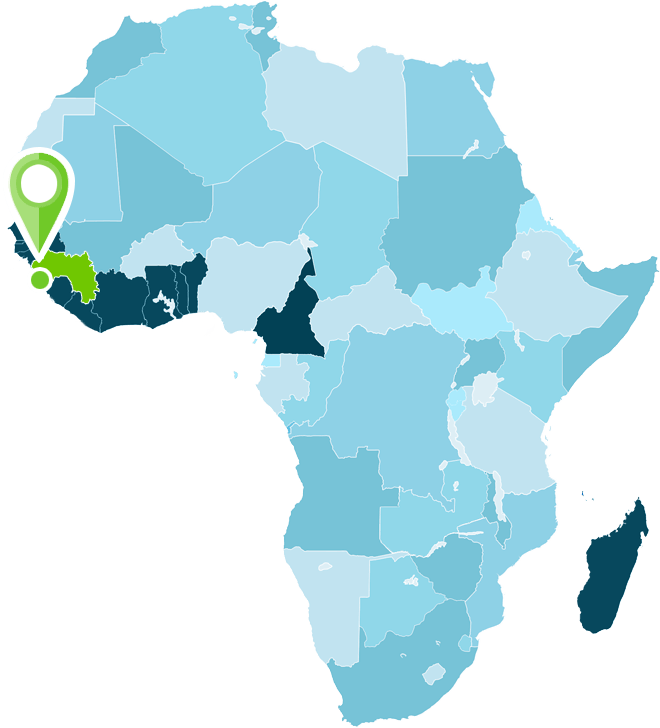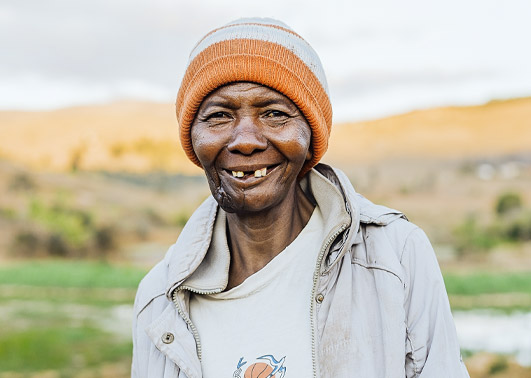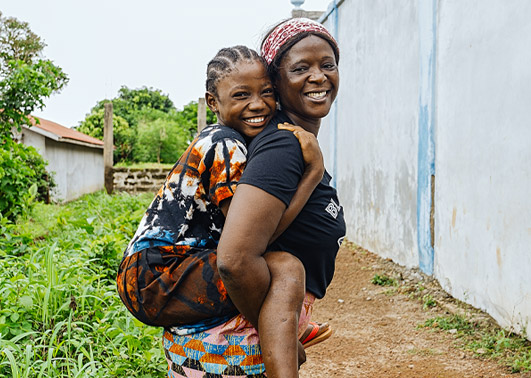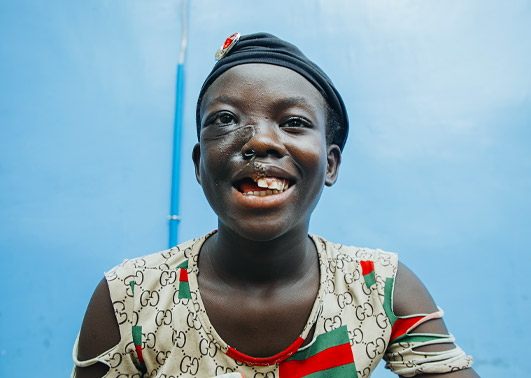Conakry, Guinea

From August 2018 to June 2019
During the 10-month stay, Mercy Ships provided 2’442 life-changing surgeries onboard our hospital ship, treated more than 7’937 patients at a land-based dental clinic, and provided training and mentoring to 1’254 local healthcare professionals.
Guinea’s economy is largely dependent on agriculture and mineral production. Guinea is a predominantly Islamic country, with Muslims representing 85% of the population. Guinea’s people belong to twenty-four ethnic groups. French, the official language of Guinea, is the main language of communication in schools, in government administration, and the media, but more than twenty-four indigenous languages are also spoken.
The Guinea flag was officially adopted on November 10, 1958. Red symbolizes the struggle for independence, yellow represents the sun and the riches of the land, while green is symbolic of the country’s vegetation.
See an overview in the video below.
Mercy Ships doesn’t just deliver medical services. We believe in driving sustainable change in every country we are invited to visit.
In Guinea, we provided training to local healthcare professionals in essential surgical skills, obstetric anaesthesia, paediatric anaesthesia, primary trauma care, essential pain management, biomedical equipment care, neonatal resuscitation, the Ponseti method for correcting clubfoot, and implementation of the WHO Surgical Safety Checklist to reduce post-operative mortality rates.
We also mentored maxillofacial teams, surgeons, surgical nurses, anaesthesia providers and sterile processing staff. Mercy Ships also ran a nutritional agriculture training course.
Action en Afrique
PARTAGER
Notre travail en Guinée en chiffres:
0
Cool Number
0
Cool Number
0
Cool Number
0
Cool Number
0
Cool Number
0
Cool Number
Mercy Ships also provided more than 18,000 dental procedures in Guinea.
Your gift transforms lives in Africa.
Einige bewegende Geschichten unserer chirurgischen Patienten

Story of Marie Elisa
Following an unexpected encounter with our medical team in her village, Marie Elisa received a maxillofacial surgery on board the Africa Mercy. An inspiring story that reflects the courage and resilience of our patients.

Story of Fudia
The 10-year-old can now walk by herself without struggling and is set to resume school, with hopes for the future set high: “I want to be a doctor, so that I can help other people,” she shared.

Story of Lucy
In 2021, Lucy suddenly experienced unbearable tooth pain. Although the tooth eventually fell out, the pain persisted. Her face became swollen, and it was discovered to be a tumor. Unfortunately, the cost of medical treatment was beyond the family’s financial means.

